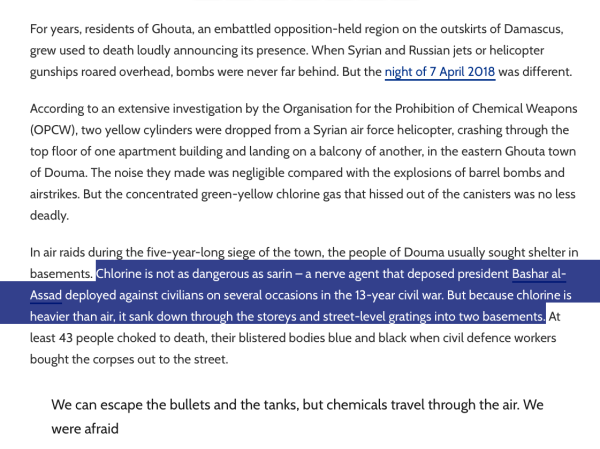After decades of repression in #Syria, one of the most oppressive police states in the world, Syrians are finally free to tell their stories, and #Assad’s repeated use of chemical warfare against his own people can no longer be ignored, covered up or denied.
https://www.byteseu.com/560354/
https://www.byteseu.com/560354/

